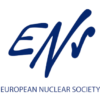Generation IV LFR, A New Cooperation Agreement Signed in Europe
Last week, newcleo, a nuclear startup based in the UK and founded in 2021 for developing clean, safe and innovative nuclear technologies, and ENEA, the Italian national agency for new technologies, energy and sustainable economic development, signed a cooperation agreement for the development of safe and innovative Generation IV nuclear systems.
The goal of the framework agreement is to produce energy in a safe, reliable, sustainable way through innovative small-scale nuclear systems to be deployed outside of Italy.
Specifically, it foresees the development of advanced nuclear systems of small dimensions (Advanced Modular Reactors), cooled with lead instead of water making them much simpler and more reliable.
newcleo intends to build the first nuclear prototype in a nuclear country within seven years, and subsequently market them internationally to gradually replace the current II- and III-generation reactors.
The collaboration envisions the construction of an electrical prototype of the Lead-cooled Fast Reactor (LFR) system, without the use of radioactive materials or nuclear fuel, to allow studying the thermo-dynamic, mechanical and functional performances.
The joint activities also concern the design of Accelerator Driven System (ADS), which will make it possible to drastically reduce the volume of existing nuclear waste.
Read the full ENEA Press Release.
ENEA is also involved several other projects concerning the study and the development of innovative nuclear technologies and Generation IV reactors, like the ALFRED project in Romania.
In the same country, ENEA is supporting the consortium including Ansaldo Nucleare (ENS Corporate Member) and Reinvent Energy for the design, procurement, installation, and commissioning service of the ATHENA (Advanced Thermo-Hydraulics Experiment for Nuclear Application) experimental plant, a facility that will host scale components for testing and demonstration of Lead-cooled Fast Reactor technology.
